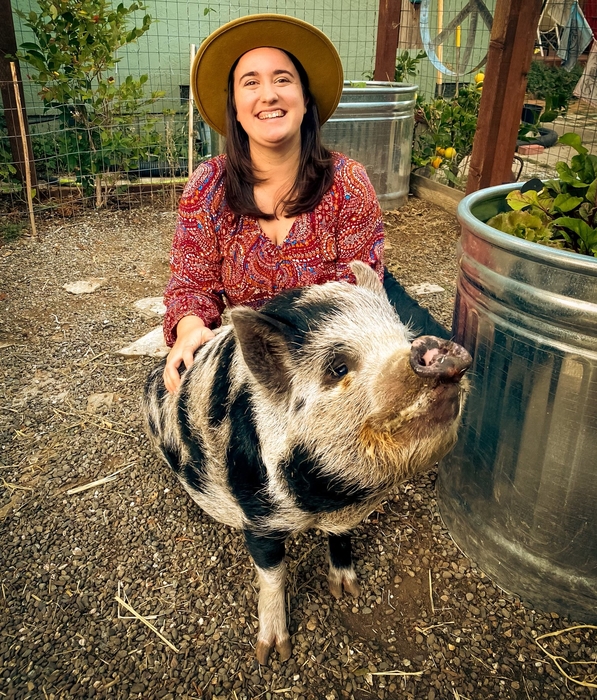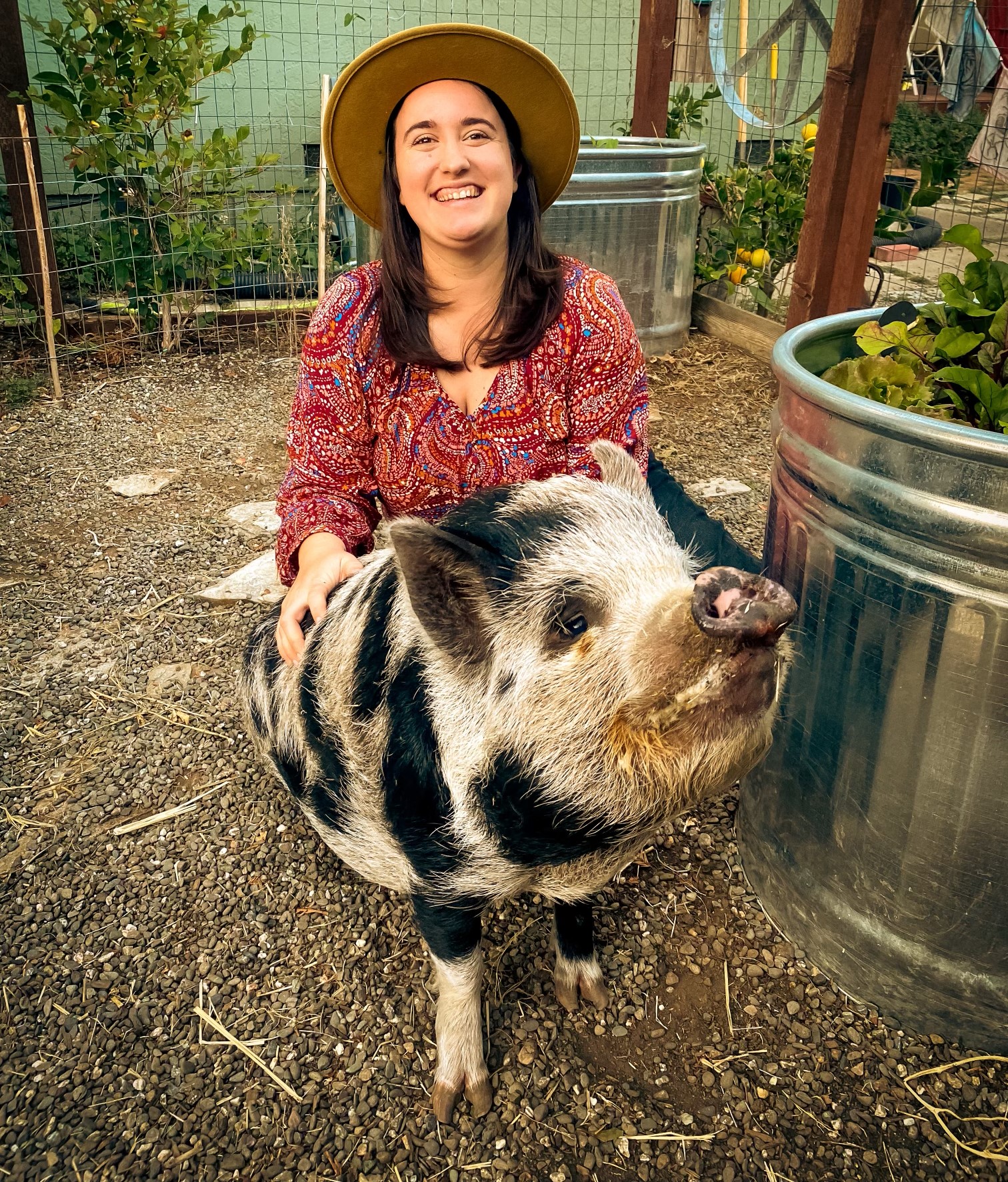Blog
Animal Companions Make Us Healthier


Animal Companions Make Us Healthier
By Jeffrey Richard, Jameson Volunteer
The final weeks of each year bring occasions for thankfulness, celebration, expressions of love, and renewed hope as we look forward to the new year. Feelings of comfort and joy are particularly evident among those who are blessed by the presence of animals in their lives. Jameson Humane has initiated a new program called Animal Assisted Healing, which seeks to maximize the benefits we humans can receive by connecting with and helping care for Jameson’s rescued animals (see program description below).
According to a 2020 article about the health benefits of animal companionship on the website of the senior-support organization, Barclay Friends: “In 2017, there were approximately 90 million dog and 96 million cat owners in the United States. Three years later, the pandemic has caused a surge in pet adoptions to the point where demand is outweighing supply.” (Seniors and Pets, A Pawsome Combination, https://bf.kendal.org/2020/09/21/seniors-and-pets-a-paw-some-combination)
Why have so many more people brought animals into their lives during these anxious and uncertain times? They seem to have an instinctive appreciation of the comfort that can come from caring for cats, dogs, and other animal companions. Whether those seeking animal companions know it or not, it is widely accepted that pets can improve our physical and mental health. The Barclay Friends article summarizes some of the impacts of having animal companions:
- Lowered cortisol, a stress hormone, and increased serotonin and dopamine, hormones associated with happiness and well-being
- Lowered blood pressure, heart rate and serum triglycerides
- Increased daily exercise in petting, lifting, grooming . . .
- Lowered risk of depression and stress-induced disease
The benefits we derive from having animal companions seem to transcend those things that can be measured. In The Power of Pets, Health Benefits of Human-Animal Interactions, the National Institutes of Health describe the tangible and intangible benefits of pets:
Nothing compares to the joy of coming home to a loyal companion. The unconditional love of a pet can do more than keep you company. Pets may also decrease stress, improve heart health, and even help children with their emotional and social skills.
. . . .
Interacting with animals has been shown to decrease levels of cortisol (a stress-related hormone) and lower blood pressure. Other studies have found that animals can reduce loneliness, increase feelings of social support, and boost your mood.
(https://newsinhealth.nih.gov/2018/02/power-pets)
Dogs and cats (each in their own way) can help people who are struggling with anxiety or illness by helping them focus on the here and now – an ability or perspective commonly referred to as mindfulness. According to the NIH article:
“Dogs are very present. If someone is struggling with something, they know how to sit there and be loving,” says Dr. Ann Berger, a physician and researcher at the NIH Clinical Center in Bethesda, Maryland. “Their attention is focused on the person all the time.”
Berger works with people who have cancer and terminal illnesses. She teaches them about mindfulness to help decrease stress and manage pain.
“The foundations of mindfulness include attention, intention, compassion, and awareness,” Berger says. “All of those things are things that animals bring to the table. People kind of have to learn it. Animals do this innately.”
The Human-Animal Bond
People enjoy a heightened sense of self-worth in caring for their pets and other animals and in turn are comforted when animals reciprocate with affection and support. Those of us who have developed bonds with pets know this to be true. The physical and mental mechanisms at play are complex from a medical and psychological perspective. But we don’t need to understand the neurological details; we know intuitively (and from our experience) that caring for animals fulfills our need to be needed. Nothing beats the joy we feel when our pets rush to greet us when we come home to them. And we are immensely satisfied by fulfilling our responsibility to love and nurture our hairy or feathery friends.
The formation of a bond of comfort and love between a human and an animal is better described by a poem than by scientific data:
Fit to Be Tied (by Jeff Richard, Nov. 2022)
When we met
You shied away
No loving looks
No happy dog games to play
I knew time must
Pass to trust
For you to see
All the good in me
To love and to share
As a fit-for-purpose pair
Two souls who found
A tie to be bound
Forever
Jameson Humane’s Animal Assisted Healing Program
Jameson Humane has long known and been inspired by the positive impacts that relationships with animals have on humans; in fact, this is one of the factors that have motivated many staff members and volunteers to join the work of Jameson Humane. Due to the serious psychological challenges so many people have experienced these last few years and the increase in mental health symptoms in our communities, Jameson Humane was called on to start an Animal Assisted Healing Program. This program is centered around the healing benefits of the human-animal bond described above. The Director of Animal Assisted Healing, Mackenzie Lovie, explains:
“We believe that by allowing members of our community who are dealing with challenges of any kind to come and interact with our rescue animals they will have the opportunity to experience some of that healing power. Our mission for this new program is centered around the belief that our rescue animals can rescue humans with their powerful stories and unconditional love.”
The community thanks and applauds Jameson for the development of this new program and for all of the great work that Jameson does for the sake of animals and humans alike.
